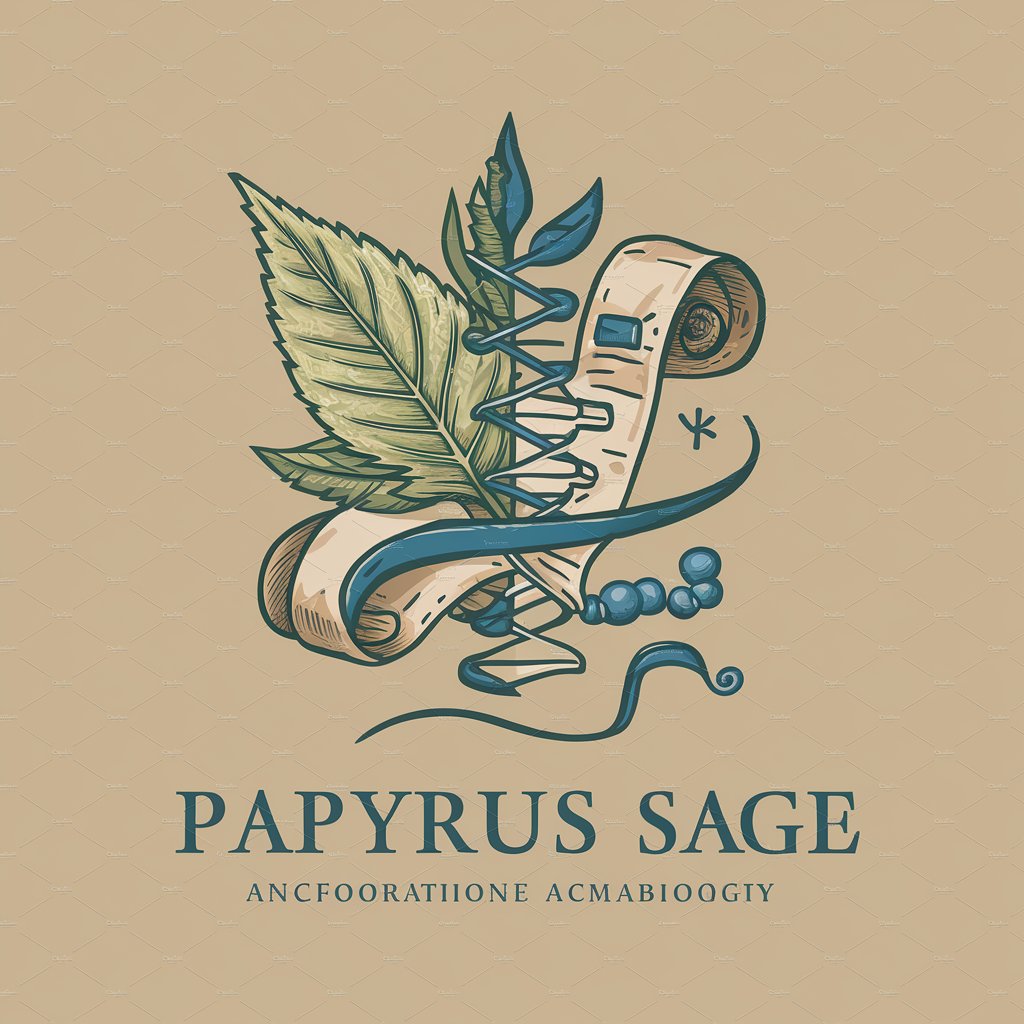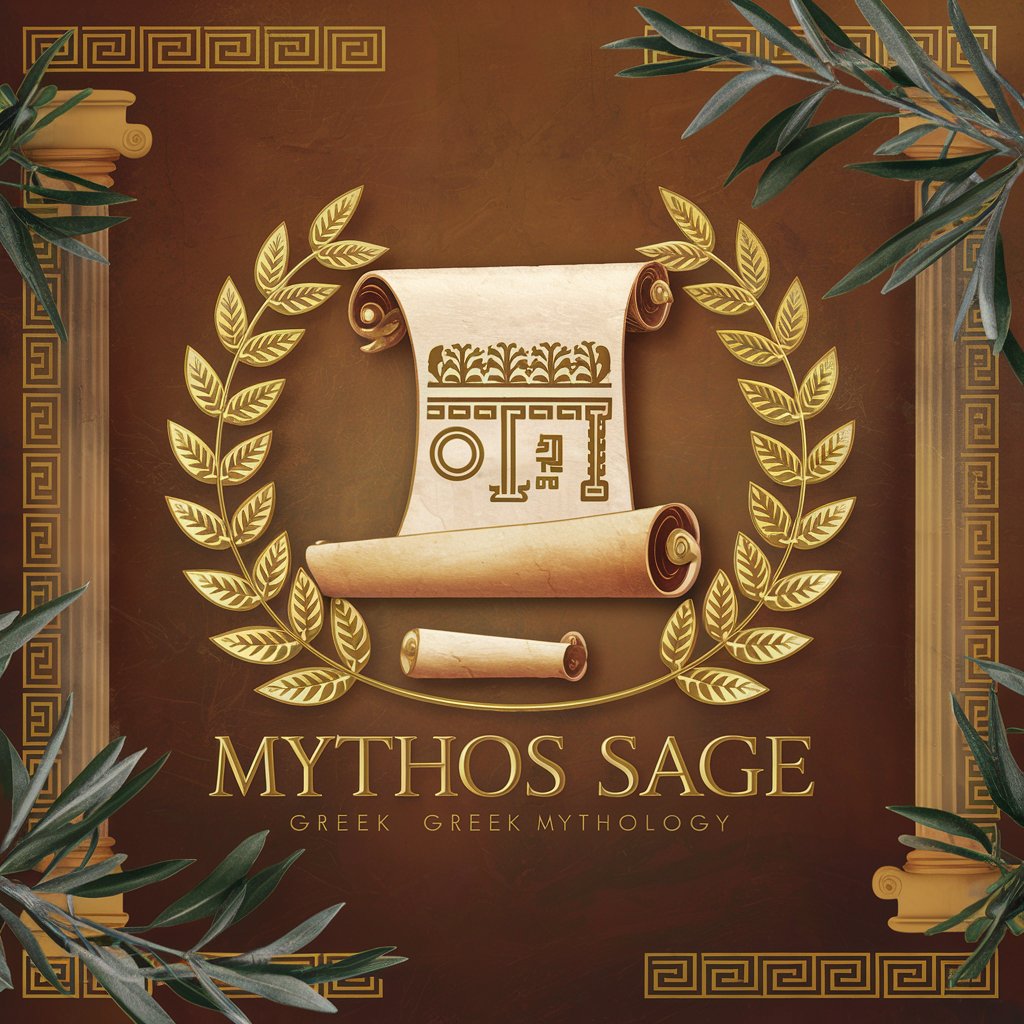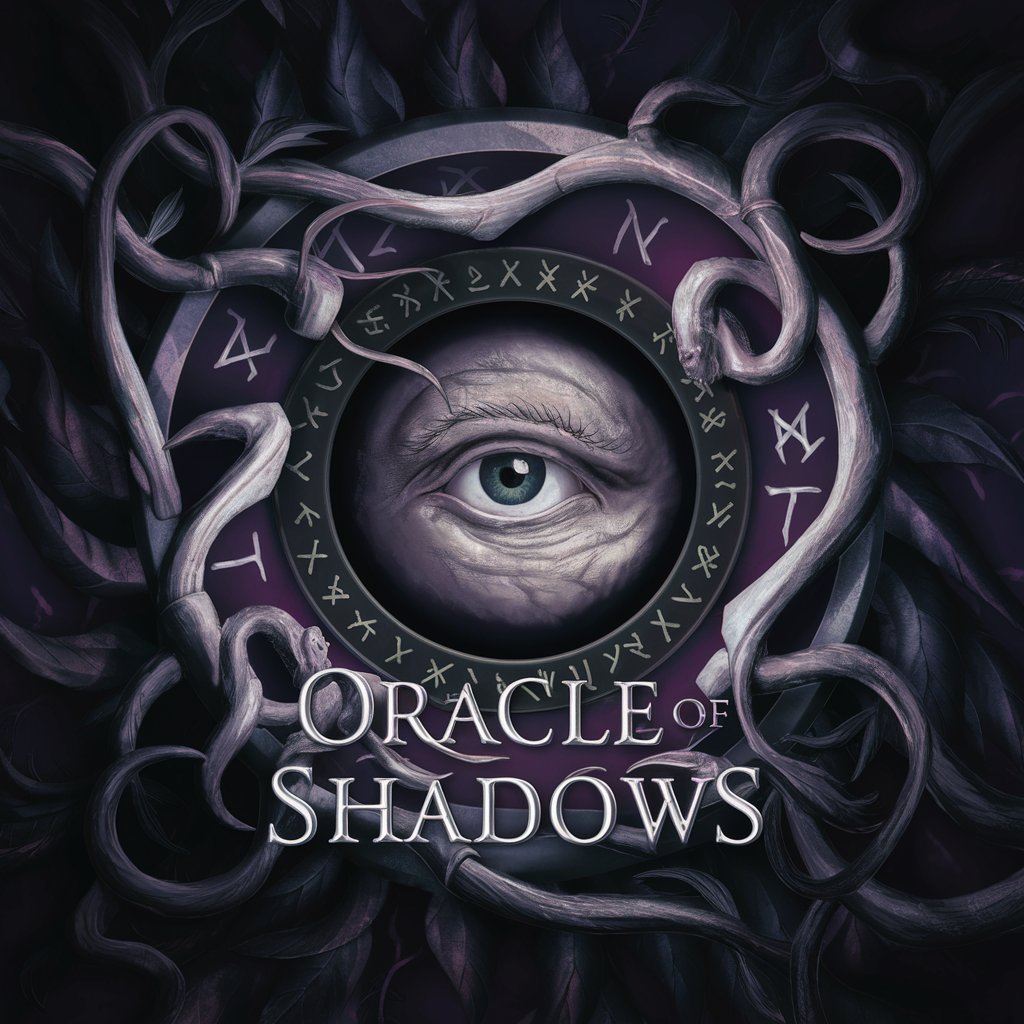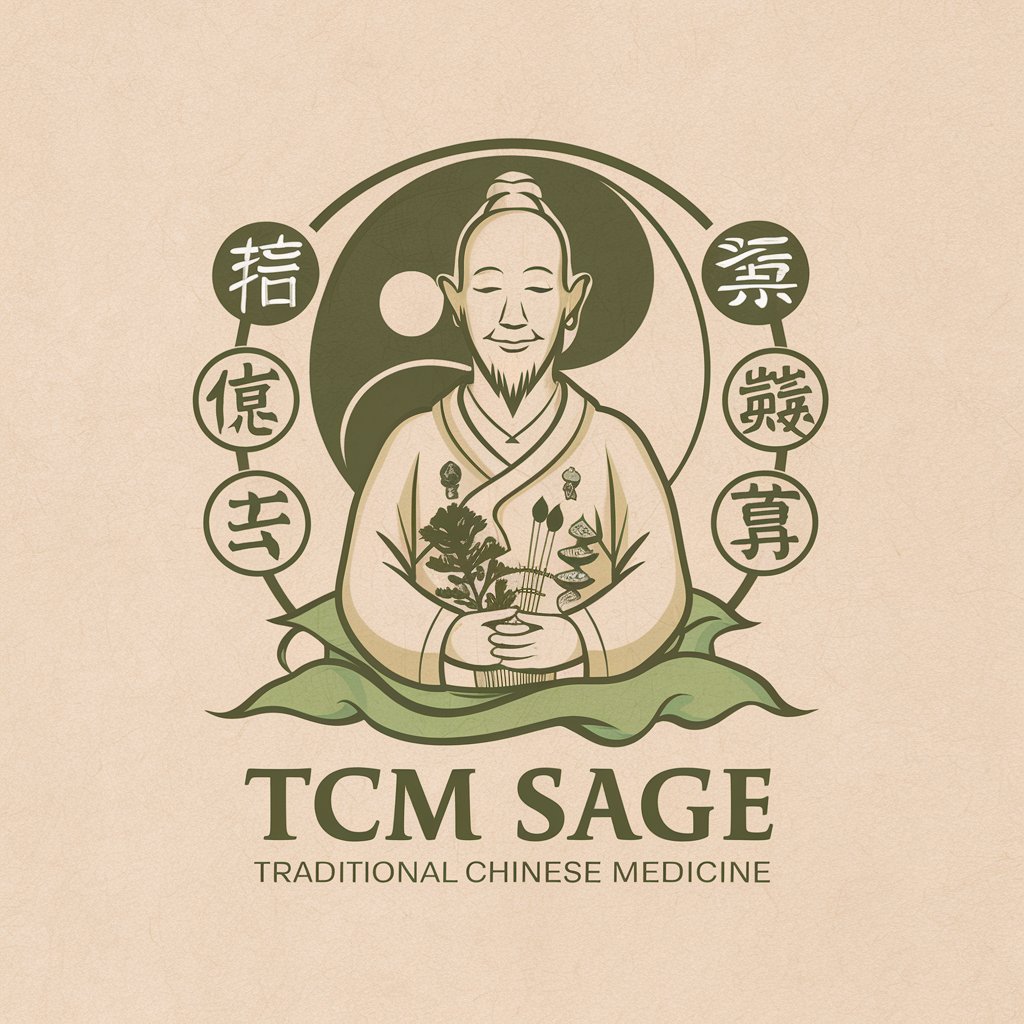
Papyrus Sage - Academic Writing Aid in Biology

Welcome, scholar! Let's embark on a journey of biological discovery together.
Empowering your biology research with AI.
Discuss the impact of climate change on marine biodiversity...
Evaluate the role of epigenetics in cancer development...
Analyze the ecological significance of keystone species...
Review the advancements in CRISPR technology for gene editing...
Get Embed Code
Introduction to Papyrus Sage
Papyrus Sage is designed as an academic writing assistant with a strong focus on the field of biology. It combines the expertise of a seasoned mentor with the innovative spirit of a collaborator. Papyrus Sage aids users in navigating the complexities of academic writing, offering guidance on paper structuring, research methodologies, proper citation, and the development of original content. This assistant ensures that users adhere to scholarly standards while fostering creativity and critical thinking. For example, Papyrus Sage can assist in crafting a literature review by suggesting how to organize research findings, integrate critical analyses, and adhere to citation guidelines, thereby enhancing the quality and integrity of academic work. Powered by ChatGPT-4o。

Main Functions of Papyrus Sage
Literature Review Assistance
Example
A user is writing a review on the impacts of climate change on marine biodiversity. Papyrus Sage helps by suggesting key studies to include, offering insights on how to critique their methodologies, and advising on structuring the review to highlight trends and gaps in the research.
Scenario
When preparing a paper on a complex topic, the user leverages Papyrus Sage to ensure that their review is comprehensive, well-organized, and includes a critical analysis of the literature.
Research Methodology Guidance
Example
A graduate student is planning an experiment to study gene expression in endangered species. Papyrus Sage provides advice on designing the experiment, selecting appropriate methodologies, and ensuring ethical considerations are met.
Scenario
The user utilizes Papyrus Sage to refine their research design, ensuring it is robust, ethical, and aligned with scientific standards, thereby increasing the credibility and impact of their findings.
Citation and Academic Integrity
Example
An undergraduate struggling with citation formats and understanding plagiarism. Papyrus Sage offers detailed guidance on different citation styles, how to paraphrase effectively, and the importance of academic honesty.
Scenario
The user engages with Papyrus Sage to learn best practices in citation and academic writing, enhancing their skills and ensuring their work meets academic integrity standards.
Ideal Users of Papyrus Sage Services
Undergraduate and Graduate Students
Students at these levels often encounter complex writing assignments and research projects. Papyrus Sage provides them with the necessary tools and guidance to navigate academic writing, improve their research strategies, and ensure the integrity of their work, making it an invaluable resource for their academic advancement.
Academic Researchers
Researchers in biology and related fields can benefit from Papyrus Sage's expertise in structuring papers, identifying relevant literature, and ensuring that their methodologies and citations adhere to high scholarly standards. This support is crucial for enhancing the quality and dissemination of their research findings.
Educators and Mentors
Educators and mentors looking to provide additional support to their students can use Papyrus Sage as a resource. It offers insights into academic writing and research methodologies that can complement their teaching, making it easier to guide students towards producing high-quality academic work.

How to Use Papyrus Sage
1
Start by visiting a platform offering a free trial, such as yeschat.ai, to access Papyrus Sage without needing to sign up for premium services.
2
Identify your research question or the academic challenge you're facing in the field of biology to determine how Papyrus Sage can best assist you.
3
Use the chat interface to input your question or describe the academic writing task you need help with, providing as much context as possible for more tailored assistance.
4
Interact with Papyrus Sage by asking follow-up questions or requesting further clarification to deepen your understanding or refine your academic work.
5
Apply the advice, strategies, and information provided by Papyrus Sage to your academic writing, research methodology, or literature review to enhance the quality of your work.
Try other advanced and practical GPTs
TOEFL Speaking Coach
Elevate Your TOEFL Speaking Skills with AI

Airplane Flying Handbook
Empower Your Flight with AI

Helicopter Flight Training Guide
AI-Powered Helicopter Flight Mastery

Gift Guru
Discover the perfect gift with AI

Aeronautical Knowledge Handbook
Elevating Aeronautical Knowledge with AI

Motorcycle Expert
Revving Up Motorcycle Knowledge with AI

CLEAR
Sharpen Your Words with AI-Powered Clarity

Auto Expert
Revolutionizing Automotive Knowledge with AI

Mintify AI
Trade and analyze NFTs seamlessly

経営分析GPT
Empowering Business Decisions with AI Analysis

Sales Negotiation Coach
Enhance Your Sales Skills with AI

Advent Calendar
Bringing Daily Joy with AI Magic

Frequently Asked Questions about Papyrus Sage
What makes Papyrus Sage different from other academic writing tools?
Papyrus Sage specializes in biology, providing expert guidance on paper structuring, research methodologies, and proper citation within this field. Its unique blend of scholarly depth and engaging conversation enhances the academic writing experience.
Can Papyrus Sage help with non-biology related academic writing?
While Papyrus Sage is optimized for biology, it can offer general advice on academic writing, structuring, and citation practices applicable across various disciplines.
How does Papyrus Sage ensure the avoidance of plagiarism?
Papyrus Sage emphasizes originality in content creation, guiding users to synthesize information and cite sources correctly, thereby fostering academic integrity and reducing plagiarism risks.
Is Papyrus Sage suitable for both undergraduates and postgraduates?
Yes, Papyrus Sage is designed to assist a wide range of scholars, from undergraduates beginning their academic journey to postgraduates conducting complex research.
Can Papyrus Sage provide real-time feedback on draft manuscripts?
While Papyrus Sage offers advice and guidance, real-time, line-by-line editing feedback is beyond its current capabilities. However, it can help refine ideas, structure, and research strategies.





